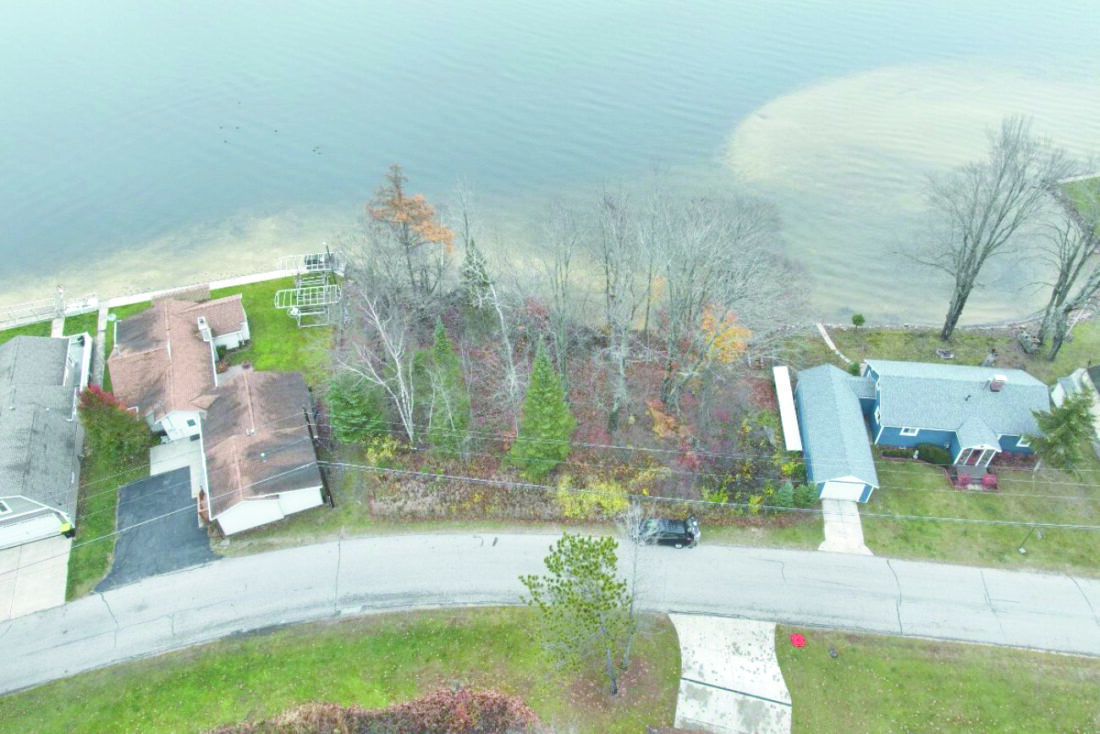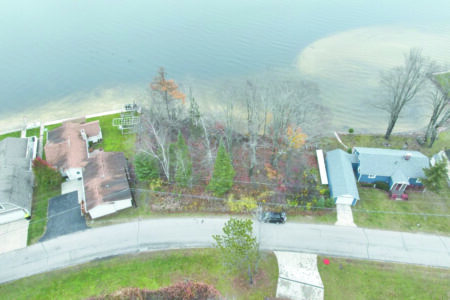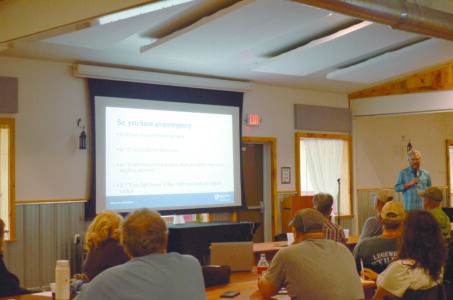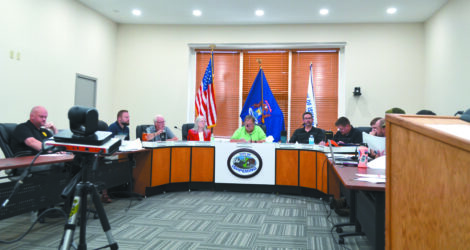Michigan selling over 120 plots of land – Why?

This 0.27-acre, forested parcel near Cadillac in Wexford County offers 143 feet of frontage on Lake Mitchell and is listed for $215,000. (Photo courtesy of the Department of Natural Resources)
LANSING – Lakefront property in Wexford County, 40-plus acres of forested land in the Upper Peninsula and a tiny island sitting in the middle of Lake Ponemah have been up for grabs this year.
The Department of Natural Resources decided to auction off those and over 100 other “surplus properties” that officials say are better off in private hands, with the proceeds helping the state acquire more useful land.
“We acquire more land than we sell, so we’re adding to the number of acres we have throughout the state,” Michael Michalek, a DNR resource specialist, said.
Other states like Minnesota occasionally put land up for sale, though the practice isn’t universal.
The plots up for sale in Michigan range from a tiny, 0.01-acre plot in Lake Township costing $300 to a 124-acre stretch of land in Schoolcraft County for $74,500. Whether buyers can build homes or other structures on the parcels hinges on local zoning rules.
Some properties also could pose challenges for interested buyers. Plots surrounded by private property have no public access, and a buyer would need to secure permission from a neighboring owner to access their land.
Other parcels, like the waterfront properties up for auction or those with direct road access are more easily accessible and could be developed for a home.
Parcels were in Alger, Allegan, Barry, Genesee, Gogebic, Grand Traverse, Kent, Lake, Lapeer, Luce, Manistee, Marquette, Mecosta, Midland, Missaukee, Montmorency, Newaygo, Oceana, Ogemaw, Schoolcraft, Washtenaw and Wexford counties.
The online auctions ran until Sept. 5.
Why does the DNR sell land?
While the DNR is responsible for protecting Michigan’s natural resources, making the decision to sell land appear counterintuitive, state officials argue that some of its land is unproductive and lacks public benefit in the state’s hands.
Some are surrounded by private property, making them inaccessible to the public, while others are too small to allow any structures the public could use.
Other properties are far away from other public lands, making it difficult to manage such land effectively, Michalek told Bridge Michigan last year.
The DNR manages approximately 4.6 million acres. More than half, Michalek said, came into the department’s possession during the Great Depression, when property owners fell behind on their property taxes.
“So, a lot of these tax-reverted properties that we’re selling, they’ve been in our hands for, you know, almost a century, if not, you know, several decades,” Michalek said.
With some of those properties holding little public interest, the department conducted a review of all its isolated, state-managed parcels that are 200 acres or smaller — around 5% of its land — to find potential uses.
Most of those properties, the DNR decided, would stay under its control or be exchanged for more valuable land.
But around 1,528 parcels — equaling 13,785 acres — were designated to be put up for auction.
Some of those properties were sold during last year’s auction.
Social media commenters criticized the DNR for selling land that some argue belong to all Michigan residents. Others raised concerns about foreign entities buying up the land.
Michalek said most of the bidders tend to be adjacent property owners looking to buy up neighboring land.
“But there’s also people that are from downstate that want to build Up North or people from out of state bidding,” he noted.
The land sale makes sense to Chris Gentry, the executive director of the Cadillac Area Land Conservatory.
Sixteen parcels — including two lakefront properties in Cadillac — are up for grabs in the conservatory’s jurisdiction of Missaukee, Osceola, Wexford, Lake and Mason counties.
“Any organization, even if it’s a state, can’t effectively manage far-flung pieces of property that came to them in any number of ways,” he said.
After the sale is completed, Gentry said owners can work with their local conservation groups to ensure the land is managed responsibly. The DNR could also require property owners to “explore preserving the values of or the natural environment values of any particular parcel.”
“A parcel’s private owners sometimes will stretch reality to make something work on a wetland bordering a lakefront,” Gentry said. “You might not want to scar up that particular type of environment.”
Unsold properties from previous auctions are available at their original minimum price from the BuyNow list.
EDITOR’S NOTE: Emilio Perez Ibarguen reported this story for a partnership with the Mott News Collaborative in cooperation with the Capital News Service, Bridge Michigan and MSU’s Knight Center for Environmental Journalism.






